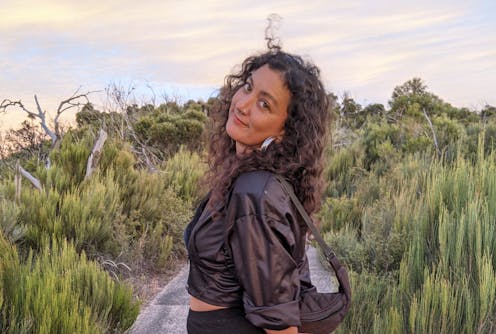Mykaela Saunders challenges colonial concepts of time – and their use to dehumanise Indigenous people
- Written by Kristopher Wilson, Director of Indigenous Leadership and Engagement and Senior Lecturer in the Faculty of Engineering and IT and Faculty of Law, University of Technology Sydney

Our understanding of ourselves is woven together with threads of time: a concept deeply entangled with power, culture and identity. Time is not a neutral concept.
Historically, time has acted as a tool of oppression and marginalisation. Colonial notions of “civilisation” were linked inescapably to the prudent use of time. So on the one hand, time is an objective measurement derived from observation of phenomena. On the other, it has been a cultural artefact, wielded to dehumanise Indigenous peoples. Their societies have been depicted as “time-less” – and therefore inferior.
The coloniality of time, and the society we have built around it, is the subject of the first short story in Dr Mykaela Saunders’ engrossing collection of Aboriginal-centred speculative fiction, Always Will Be[1].
Review: Always Will Be – Mykaela Saunders (UQP)
In Taking our Time, a future Goori community in the Tweed assert their sovereignty by confiscating all the clocks, reclaiming – and reasserting, as they do so – Goori understandings of space and time. They directly challenge the centrality of quantifying, and accounting to, linear time.
















